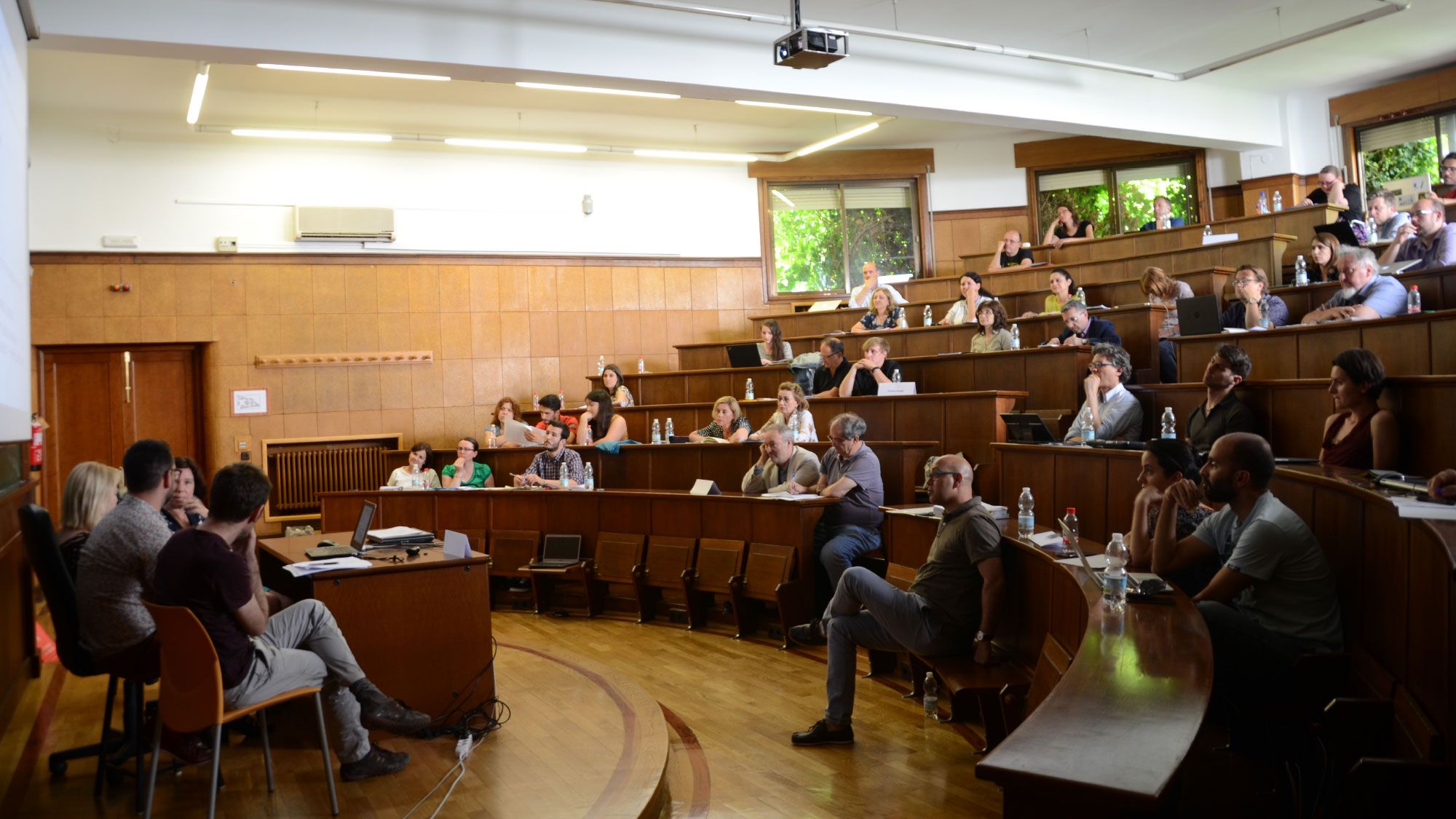Privacy Policy
Name and contact of the person responsible according to Article 4 para. 7 GDPR
European Research Services GmbH
Mendelstraße 17
48149 Münster
Germany
Phone: +49 0)251 9829586-0
Email: oliver.panzer@european-research-services.eu
Security and protection of your personal data
We consider it our primary task to protect the confidentiality of the personal data you provide and to protect it from unauthorized access. We therefore apply the utmost care and state-of-the-art security standards to ensure maximum protection of your personal data.
As a company under private law, we are subject to the provisions of the European Data Protection Ordinance (GDPR) and the provisions of the Federal Data Protection Act (BDSG). We have taken technical and organisational measures to ensure that the data protection regulations are observed both by us and by our external service providers.
Definitions
The legislator requires that personal data be processed in a lawful manner, in good faith and in a manner that is comprehensible to the person concerned ("lawfulness, processing in good faith, transparency"). In order to ensure this, we inform you about the individual legal definitions which are also used in this data protection declaration:
1. personal data
"Personal data" means any information relating to an identified or identifiable natural person (hereinafter referred to as "data subject"); an identifiable natural person is one who can be identified, directly or indirectly, in particular by assignment to an identifier such as a name, an identification number, location data, an online identifier or to one or more special characteristics which express the physical, physiological, genetic, psychological, economic, cultural or social identity of that natural person.
2. processing
"processing" means any operation carried out, with or without the aid of automated procedures, or any such series of operations relating to personal data, such as the collection, collection, organisation, arrangement, storage, adaptation or alteration, retrieval, consultation, use, disclosure by transmission, dissemination or any other form of provision, comparison or linking, restriction, erasure or destruction.
3. restriction of processing
"Restriction on processing" means the marking of stored personal data with the aim of restricting their future processing.
4. profiling
"Profiling" means any automated processing of personal data consisting in the use of such personal data to evaluate certain personal aspects relating to a natural person, in particular to analyse or predict aspects relating to the work performance, economic situation, health, personal preferences, interests, reliability, behaviour, location or relocation of that natural person.
5. pseudonymization
"Pseudonymisation" means the processing of personal data in such a way that the personal data can no longer be attributed to a specific data subject without the use of additional information, provided that this additional information is kept separately and is subject to technical and organisational measures which ensure that the personal data cannot be attributed to an identified or identifiable natural person.
6. file system
"file system" means any structured collection of personal data accessible according to specific criteria, whether centralised, decentralised, functional or geographical.
7. person in charge
"controller" means a natural or legal person, authority, body, agency or other body which alone or jointly with others decides on the purposes and means of processing personal data; where the purposes and means of such processing are specified by Union law or the law of the Member States, the controller or certain criteria for his appointment may be laid down in accordance with Union law or the law of the Member States.
8. contractors
"processor" means a natural or legal person, authority, institution or other body processing personal data on behalf of the data controller.
9. recipient
"Recipient" means a natural or legal person, authority, institution or other body to which personal data is disclosed, whether or not it is a third party. However, authorities which may receive personal data under Union law, or the law of the Member States under a particular investigation mandate shall not be considered recipients; the processing of such data by the said authorities shall be carried out in accordance with the applicable data protection rules in accordance with the purposes of the processing.
10. third parties
"third party" means a natural or legal person, authority, institution or other body other than the data subject, the data processor, the data processor and the persons authorised to process the personal data under the direct responsibility of the data processor or the data processor.
11. consent
Data subject's "consent" means any voluntary declaration of intent in the specific case, in an informed and unequivocal manner, in the form of a declaration or other clear affirmative act with which the data subject indicates that he or she agrees to the processing of personal data concerning him or her.
Legality of processing
The processing of personal data is only legal if there is a legal basis for the processing. Pursuant to Article 6(1), the legal basis for processing may be lit. a - f GDPR in particular:
a.The data subject has given his/her consent to the processing of his/her personal data for one or more specific purposes;
b. processing is necessary for the performance of a contract to which the data subject is a party or for the implementation of pre-contractual measures taken at the request of the data subject;
c. the processing is necessary to fulfil a legal obligation to which the controller is subject;
d. processing is necessary to protect the vital interests of the data subject or another natural person;
e. the processing is necessary for the performance of a task in the public interest or in the exercise of official authority conferred on the controller;
f. processing is necessary to safeguard the legitimate interests of the data controller or a third party, unless the interests or fundamental rights and freedoms of the data subject which require the protection of personal data prevail, in particular where the data subject is a child.
Information about the collection of personal data
(1) In the following we inform about the collection of personal data when using our website. Personal data are e.g. name, address, e-mail addresses, user behaviour.
(2) If you contact us by e-mail or via a contact form, the data you provide (your e-mail address, if applicable your name and your telephone number) will be stored by us in order to answer your questions. We delete the data arising in this context after storage is no longer necessary, or processing is restricted if statutory retention obligations exist.
Collection of personal data when you visit our website
When using the website for information purposes only, i.e. if you do not register or otherwise provide us with information, we only collect the personal data that your browser transmits to our server. If you wish to view our website, we collect the following data, which are technically necessary for us to display our website to you and to guarantee stability and security (legal basis is Art. 6 Para. 1 S. 1 lit. f GDPR):
- IP address
- date and time of the request
- Time zone difference to Greenwich Mean Time (GMT)
- Content of the request (specific page)
- Access status/HTTP status code
- the amount of data transferred in each case
- Website from which the request comes
- Browser
- Operating system and its interface
- Language and version of the browser software.
Use of cookies
(1) In addition to the aforementioned data, cookies are stored on your computer when you use our website. Cookies are small text files that are stored on your hard disk in the browser you use and through which certain information flows to the place that sets the cookie. Cookies cannot run programs or transmit viruses to your computer. They serve to make the Internet offer more user-friendly and effective overall.
(2) This website uses the following types of cookies, the scope and functioning of which are explained below:
Transient cookies (see a.)
Persistent cookies (see b.).
a. Transient cookies are automatically deleted when you close your browser. This includes in particular the session cookies. These store a so-called session ID, with which different requests of your browser can be assigned to the common session. This will allow your computer to be recognized when you return to our website. Session cookies are deleted when you log out or close your browser.
b. Persistent cookies are automatically deleted after a specified period, which may vary depending on the cookie. You can delete cookies at any time in the security settings of your browser.
c. You can configure your browser settings according to your wishes and refuse the acceptance of third party cookies or all cookies. Third Party Cookies" are cookies that have been set by a third party and therefore not by the actual website you are currently visiting. Please note that you may not be able to use all functions of this website by deactivating cookies.
Further functions and offers of our website
(1) In addition to the purely informational use of our website, we offer various services which you can use if you are interested. As a rule, you must provide further personal data, which we use to provide the respective service and to which the aforementioned data processing principles apply.
(2) In some cases, we use external service providers to process your data. These have been carefully selected and commissioned by us, are bound by our instructions and are regularly checked.
(3) Furthermore, we may pass on your personal data to third parties if we offer participation in promotions, competitions, conclusion of contracts or similar services together with partners. For more information, please provide your personal data or see the description of the offer below.
(4) If our service providers or partners are based in a country outside the European Economic Area (EEA), we will inform you of the consequences of this circumstance in the description of the offer.
Newsletter
(1) With your consent you can subscribe to our newsletter, with which we inform you about our current interesting offers. The advertised goods and services are named in the declaration of consent.
(2) We use the double opt-in procedure to subscribe to our newsletter. This means that after your registration we will send you an e-mail to the specified e-mail address in which we ask you to confirm that you would like the newsletter to be sent. If you do not confirm your registration within 24 hours, your information will be blocked and automatically deleted after one month. In addition, we store your IP addresses and the time of registration and confirmation. The purpose of the procedure is to be able to prove your registration and, if necessary, to clarify a possible misuse of your personal data.
(3) The only mandatory information for sending the newsletter is your e-mail address. The indication of further, separately marked data is voluntary and is used to be able to address you personally. After your confirmation we will save your e-mail address for the purpose of sending you the newsletter. The legal basis is Art. 6 para. 1 sentence 1 lit. a GDPR.
(4) You can revoke your consent to the sending of the newsletter at any time and cancel the newsletter. You can declare your revocation by clicking on the link provided in every newsletter e-mail, by e-mail to info@patrols-h2020.eu or by sending a message to the contact details given in the imprint.
(5) We would like to point out that we evaluate your user behaviour when sending the newsletter. For this analysis, the e-mails sent contain so-called web beacons or tracking pixels, which represent single-pixel image files stored on our website. For the evaluations we link the data mentioned in § 3 and the web beacons with your e-mail address and an individual ID. The data is collected exclusively pseudonymised, the IDs are therefore not linked to your other personal data, direct personal relationship is excluded. You can object to this tracking at any time by clicking on the separate link provided in each e-mail or by informing us of another contact method. The information is stored for as long as you have subscribed to the newsletter. After a cancellation we store the data purely statistically and anonymously.
Children
Our offer is basically aimed at adults. Persons under the age of 18 should not transmit any personal data to us without the consent of their parents or legal guardians.
Rights of the data subject
(1) Revocation of consent
If the processing of personal data is based on a given consent, you have the right to revoke the consent at any time. The revocation of consent shall not affect the legality of the processing carried out on the basis of the consent until revocation.
You can contact us at any time to exercise your right of withdrawal.
(2) Right to confirmation
You have the right to request confirmation from the person responsible as to whether we are processing personal data relating to you. You can request confirmation at any time using the above contact details.
(3) Right to information
If personal data is processed, you can request information about this personal data and about the following information at any time:
a. processing purposes;
b. the categories of personal data being processed;
c. the recipients or categories of recipients to whom the personal data have been or are still being disclosed, in particular recipients in third countries or international organisations;
d. if possible, the planned duration for which the personal data will be stored or, if this is not possible, the criteria for determining this duration;
e. the existence of a right to have your personal data concerning you corrected or deleted or to have the data controller restrict or object to such processing;
f. the existence of a right of appeal to a supervisory authority;
g. if the personal data are not collected from the data subject, all available information on the origin of the data;
h. the existence of automated decision-making, including profiling in accordance with Article 22(1) and (4) DSBER and, at least in these cases, meaningful information on the logic involved and the scope and intended impact of such processing on the data subject.
If personal data are transferred to a third country or an international organisation, you have the right to be informed of the appropriate guarantees in accordance with Article 46 GDPR in connection with the transfer. We provide a copy of the personal data that is the subject of the processing. We may charge an appropriate fee based on administrative costs for any additional copies you request from a person. If you submit the application electronically, the information shall be provided in a common electronic format, unless otherwise specified. The right to obtain a copy in accordance with paragraph 3 shall not prejudice the rights and freedoms of other persons.
(4) Right to correction
You have the right to request us to correct any inaccurate personal data concerning you without delay. Taking into account the purposes of the processing, you have the right to request the completion of incomplete personal data - also by means of a supplementary declaration.
(5) Right to cancellation ("Right to be forgotten")
You have the right to request the data controller to delete personal data relating to you immediately and we are obliged to delete personal data immediately if one of the following reasons applies:
a. The personal data are no longer necessary for the purposes for which they were collected or otherwise processed.
b. The data subject withdraws his/her consent on which processing was based in accordance with Article 6(1)(a) or Article 9(2)(a) DSBER and there is no other legal basis for processing.
c. The data subject opposes processing under Article 21(1) GDPR and there are no overriding legitimate grounds for processing or the data subject opposes processing under Article 21(2) GDPR.
d. The personal data have been processed unlawfully.
e. The deletion of personal data is necessary to fulfil a legal obligation under Union law or the law of the Member States to which the data controller is subject.
f. The personal data have been collected in relation to information society services provided in accordance with Article 8(1) GDPR.
Where the data controller has made the personal data public and is obliged to delete them in accordance with paragraph 1, the data holder shall take appropriate measures, including technical measures, taking into account the available technology and implementation costs, to inform data processors who process the personal data that a data subject has requested them to delete all links to such personal data or copies or replications of such personal data.
The right to cancellation ("right to be forgotten") does not exist if the processing is necessary:
to exercise freedom of expression and information;
for the performance of a legal obligation required for processing under the law of the Union or of the Member States to which the controller is subject or for the performance of a task in the public interest or in the exercise of official authority conferred on the controller;
for reasons of public interest in the field of public health in accordance with Article 9(2)(h) and (i) and Article 9(3) GDPR;
for archiving purposes of public interest, scientific or historical research purposes or for statistical purposes as referred to in Article 89(1) GDPR, where the right referred to in paragraph 1 is likely to render impossible or seriously prejudicial the attainment of the objectives of such processing, or to assert, exercise or defend legal claims.
(6) Right to limitation of processing
You have the right to request us to restrict the processing of your personal data if one of the following conditions is met:
a. the accuracy of the personal data is disputed by the data subject for a period which enables the data controller to verify the accuracy of the personal data,
b. the processing is unlawful and the data subject refuses to delete the personal data and instead requests that the use of the personal data be restricted;
c. the data controller no longer needs the personal data for the purposes of the processing, but the data subject needs them for the assertion, exercise or defence of legal claims, or
d. the data subject has lodged an objection to the processing referred to in Article 21(1) DSBER until it has been established whether the data subject's justified grounds outweigh those of the data subject.
Where processing has been restricted in accordance with the conditions set out above, such personal data shall only be processed - apart from being stored - with the consent of the data subject or for the purpose of asserting, exercising or defending rights or protecting the rights of another natural or legal person or on grounds of an important public interest of the Union or a Member State.
In order to exercise the right to restrict processing, the data subject may contact us at any time using the contact details provided above.
(7) Right to data transferability
You have the right to receive the personal data concerning you that you have provided to us in a structured, current and machine-readable format, and you have the right to transmit this data to another responsible person without interference by the responsible person to whom the personal data was provided, provided that:
a. processing is based on consent pursuant to Article 6(1)(a) or Article 9(2)(a) or on a contract pursuant to Article 6(1)(b) GDPR; and
b. processing is carried out using automated methods.
When exercising the right to data transferability under paragraph 1, you have the right to have the personal data transferred directly from one data controller to another data controller, where this is technically feasible. The exercise of the right to data transferability does not affect the right to deletion ("right to be forgotten"). This right shall not apply to processing necessary for the performance of a task in the public interest or in the exercise of official authority conferred on the controller.
(8) Right of objection
You have the right to object at any time to the processing of personal data concerning you under Article 6(1)(e) or (f) of the DSBER for reasons arising from your particular situation, including profiling based on these provisions. The data controller no longer processes the personal data unless he can prove compelling grounds for protection for the processing which outweigh the interests, rights and freedoms of the data subject or the processing serves to assert, exercise or defend legal claims.
If personal data are processed for direct marketing purposes, you have the right to object at any time to the processing of personal data concerning you for the purpose of such advertising; this also applies to profiling, insofar as it is associated with such direct marketing. If you object to the processing for direct marketing purposes, the personal data will no longer be processed for these purposes.
In connection with the use of Information Society services, notwithstanding Directive 2002/58/EC, you may exercise your right of opposition by means of automated procedures using technical specifications.
You have the right to object to the processing of personal data concerning you, for scientific or historical research purposes or for statistical purposes in accordance with Article 89(1), for reasons arising from your particular situation, unless such processing is necessary for the performance of a task in the public interest.
You can exercise your right of objection at any time by contacting the person responsible.
(9) Automated decisions in individual cases including profiling
You have the right not to be subject to a decision based exclusively on automated processing - including profiling - that has legal effect against you or significantly impairs you in a similar manner. This does not apply if the decision:
a. is necessary for the conclusion or performance of a contract between the data subject and the data controller,
b. is admissible by law of the Union or of the Member States to which the data controller is subject and that law contains appropriate measures to safeguard the rights, freedoms and legitimate interests of the data subject; or
c. with the express consent of the data subject.
The data controller shall take appropriate measures to safeguard the rights, freedoms and legitimate interests of the data subject, including at least the right to obtain the intervention of a person by the data controller, to state his own position and to challenge the decision.
The person concerned may exercise this right at any time by contacting the person responsible.
(10) Right of appeal to a supervisory authority
They shall also, without prejudice to any other administrative or judicial remedy, have the right of appeal to a supervisory authority, in particular in the Member State of their place of residence, of work or of the place of suspected infringement, where the data subject considers that the processing of personal data concerning him or her is contrary to this Regulation.
(11) Right to an effective judicial remedy
Without prejudice to any available administrative or extrajudicial remedy, including the right of appeal to a supervisory authority under Article 77 GDPR, they shall have the right to an effective judicial remedy if they consider that their rights under this Regulation have been infringed as a result of processing of their personal data in breach of this Regulation.
Integration of Google Maps
(1) On this website we use the offer of Google Maps. This allows us to display interactive maps directly on the website and enables you to conveniently use the map function.
(2) By visiting the website, Google receives information that you have called up the corresponding subpage of our website. In addition, the data referred to in paragraph "Information on the collection of personal data" of this declaration are transmitted. This is regardless of whether Google provides a user account that you are logged in with or whether no user account exists. If you are logged in to Google, your information will be directly associated with your account. If you do not wish to be associated with your profile on Google, you must log out before activating the button. Google stores your data as usage profiles and uses them for purposes of advertising, market research and/or demand-oriented design of its website. Such evaluation takes place in particular (even for unlogged-in users) to provide demand-oriented advertising and to inform other users of the social network about your activities on our website. You have the right to object to the creation of these user profiles, whereby you must contact Google to exercise this right.
(3) Further information on the purpose and scope of data collection and its processing by the plug-in provider can be found in the data protection declarations of the provider. There you will also find further information about your rights in this regard and setting options for the protection of your privacy: http://www.google.de/intl/de/policies/privacy. Google also processes your personal data in the USA and has submitted to the EU-US Privacy Shield, https://www.privacyshield.gov/EU-US-Framework.
Google Web Fonts
This site uses so-called web fonts provided by Google to uniformly display fonts. When you call up a page, your browser loads the required Web fonts into your browser cache to display texts and fonts correctly.
To do this, the browser you are using must connect to Google's servers. This gives Google knowledge that our website has been accessed via your IP address. The use of Google Web Fonts is in the interest of a uniform and appealing presentation of our online offers. This represents a legitimate interest within the meaning of Art. 6 para. 1 lit. f GDPR.
If your browser does not support web fonts, a default font is used by your computer.
Further information about Google Web Fonts can be found at https://developers.google.com/fonts/faq and in Google's privacy policy: https://www.google.com/policies/privacy/.
Contract processors
We use external service providers (contract processors), e.g. for the dispatch of goods, newsletters or payment processing. A separate order data processing has been concluded with the service provider in order to guarantee the protection of your personal data.
We cooperate with the following service providers:
MailChimp - The Rocket Science Group, LLC
675 Ponce de Leon Ave NE, Suite 5000, Atlanta, GA 30308 USA
























